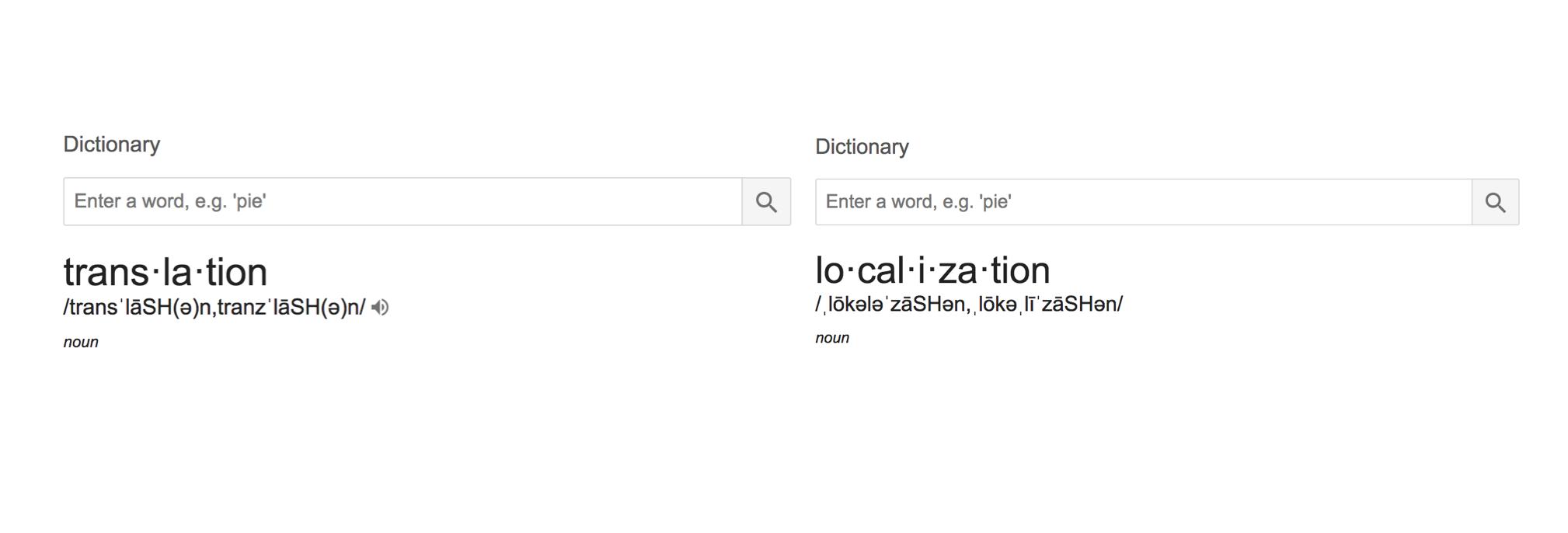Don't just translate, localize.
5 min read

When thinking about global expansion for your business, consider this: 80% of the world’s population doesn’t speak English. In order to communicate effectively with locals around the world, you need to speak their language; go beyond translating your content and materials word-for-word and instead, localize. There's a difference.
Translation is the process of translating words or text from one language into another. Localization, on the other hand, is the process of making something local in character or restricting it to a particular place.
The goal of translation is to make words and phrases understandable in other languages. For example, let’s say you’re in the grocery store, and you’ve decided to buy a tub of strawberry gelato. You make your way to the frozen desserts aisle, each freezer lined with dozens of flavors, only to realize that all of the flavors are listed in Italian: Cioccolato, Fragola or Stracciatella and so on. Here’s when translation comes in handy – you pull out your phone do a quick word search and figure out, ‘Strawberry Gelato’ translates to Gelato Fragola in Italian. You take that tub out of the freezer, check it off of your grocery list and move on.
When it comes to localization, you don’t stop at making words understandable, but rather, you go on to make words and phrases relatable. Translation is just a small part of the entire localization process. Think of it as having a casual conversation with a friend, who happens to speak a different language. There are number of things to consider when conversing with someone in their native language: contextual and linguistic peculiarities, and even more so, nuance, humor, idioms and prose. Casual conversations with friends are meant to be intimate, thoughtful and put simply, easy. Sure, basic translations can get you mostly there, but localization goes that extra mile in making dialogue between the two of you deeply personal.
In truth, localization enables so much about the human experience; it transcends mere comprehension and affords brands and companies the opportunity to connect with customers on a profound level. Yes, we sometimes buy things on the basis of features and qualifications, but we also buy things that move us, and tell us a story. Feeling is such a huge part of the selling process and localization makes sure to relay that value to your customers all over the world.



